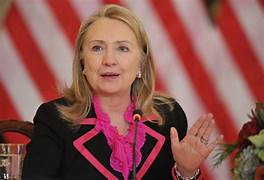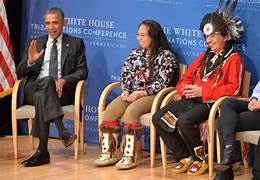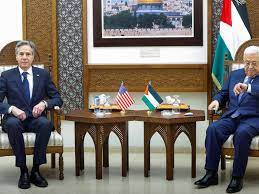In 2008, the United States witnessed a historic moment that reverberated across the political landscape as then-President-elect Barack Obama nominated Hillary Rodham Clinton for the position of Secretary of State. This surprising and strategic move marked a pivotal moment in American politics, symbolizing a commitment to unity and diplomacy on the global stage.
The 2008 presidential election had been a fiercely contested battle between Barack Obama and Hillary Clinton for the Democratic Party nomination. The primary campaign was intense, marked by debates, rallies, and a high level of voter engagement. Ultimately, Obama secured the nomination, and to the surprise of many, he extended an olive branch to his former rival by offering her the role of Secretary of State. This decision underscored Obama's emphasis on assembling a diverse and experienced team to address the complex challenges facing the nation and the world.
Hillary Clinton's nomination as Secretary of State was met with a combination of excitement, skepticism, and curiosity. As a former First Lady, Clinton had already been a prominent figure in American politics, but her acceptance of the position marked a significant departure from her previous roles. The Secretary of State is the chief diplomat of the United States, responsible for managing the country's foreign affairs and representing its interests abroad. Clinton's appointment signaled a commitment to a strong and experienced leadership in international relations.
The confirmation process for Clinton was robust, with the Senate Foreign Relations Committee scrutinizing her qualifications, views on key issues, and potential conflicts of interest. During her confirmation hearings, Clinton demonstrated a deep understanding of global affairs, outlining her vision for American diplomacy and the role of the United States in fostering international cooperation. Her performance during the hearings reassured both supporters and skeptics of her ability to navigate the complex world of international relations.
Once confirmed, Secretary Clinton wasted no time in asserting herself on the global stage. She embarked on a diplomatic tour, meeting with world leaders and addressing critical issues such as climate change, nuclear proliferation, and economic cooperation. Her tenure was marked by a focus on "smart power," emphasizing the use of a combination of diplomatic, economic, and military tools to achieve U.S. foreign policy goals. Clinton's approach reflected a nuanced understanding of the interconnected challenges facing the international community.
One of the defining moments of Clinton's time as Secretary of State occurred with the Arab Spring in 2011. As popular uprisings spread across the Middle East and North Africa, Clinton played a key role in shaping the U.S. response. She advocated for a measured and strategic approach, supporting democratic movements while acknowledging the complexities of each situation. Clinton's leadership during this tumultuous period earned her praise for her diplomatic acumen and pragmatism.
In hindsight, Hillary Clinton's tenure as Secretary of State in the Obama administration stands as a testament to her resilience, diplomatic skill, and commitment to advancing U.S. interests on the global stage. Her nomination and subsequent service in this role demonstrated a willingness to put aside political differences for the greater good and showcased the importance of experienced leadership in navigating the complexities of international relations.






